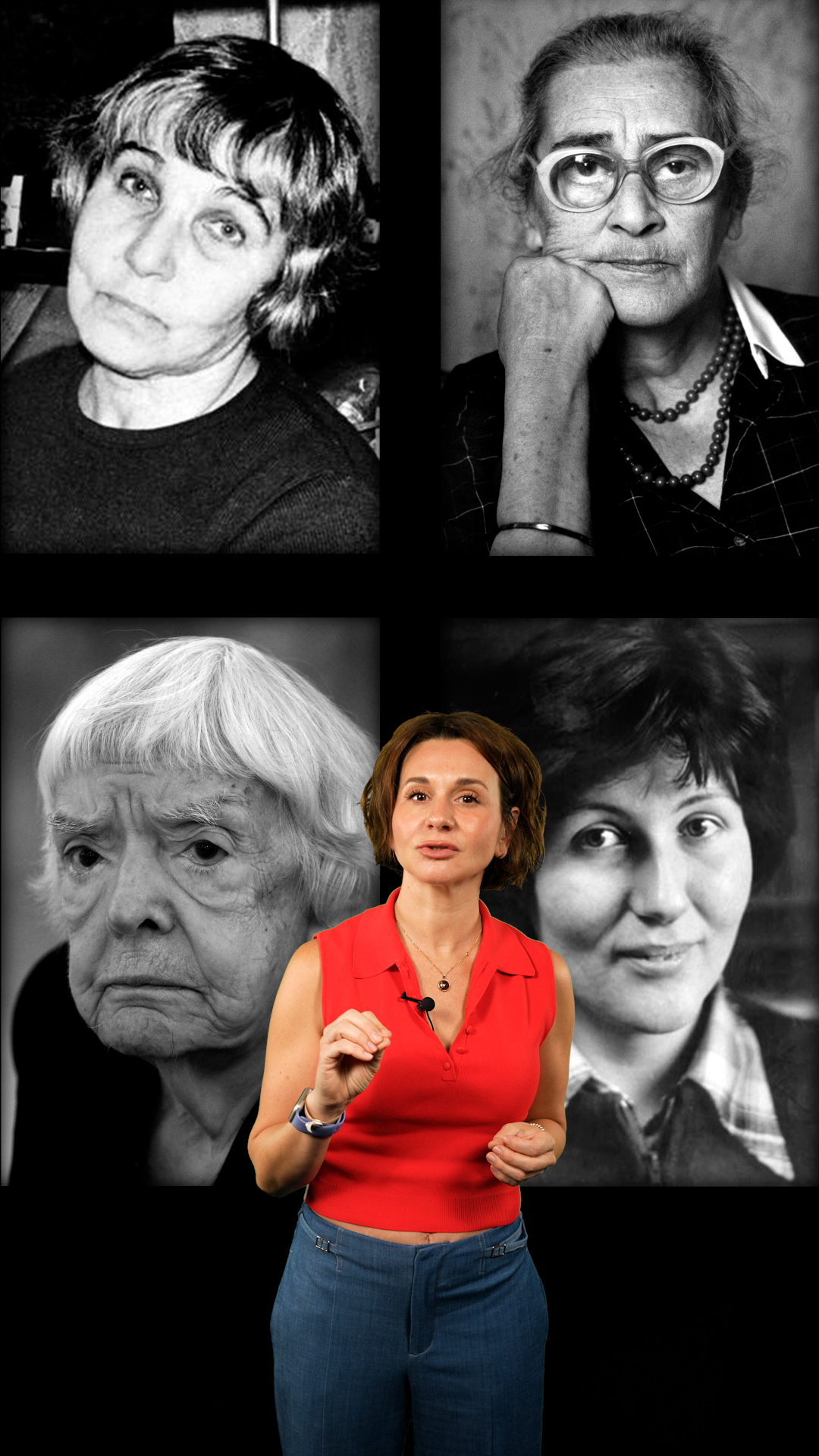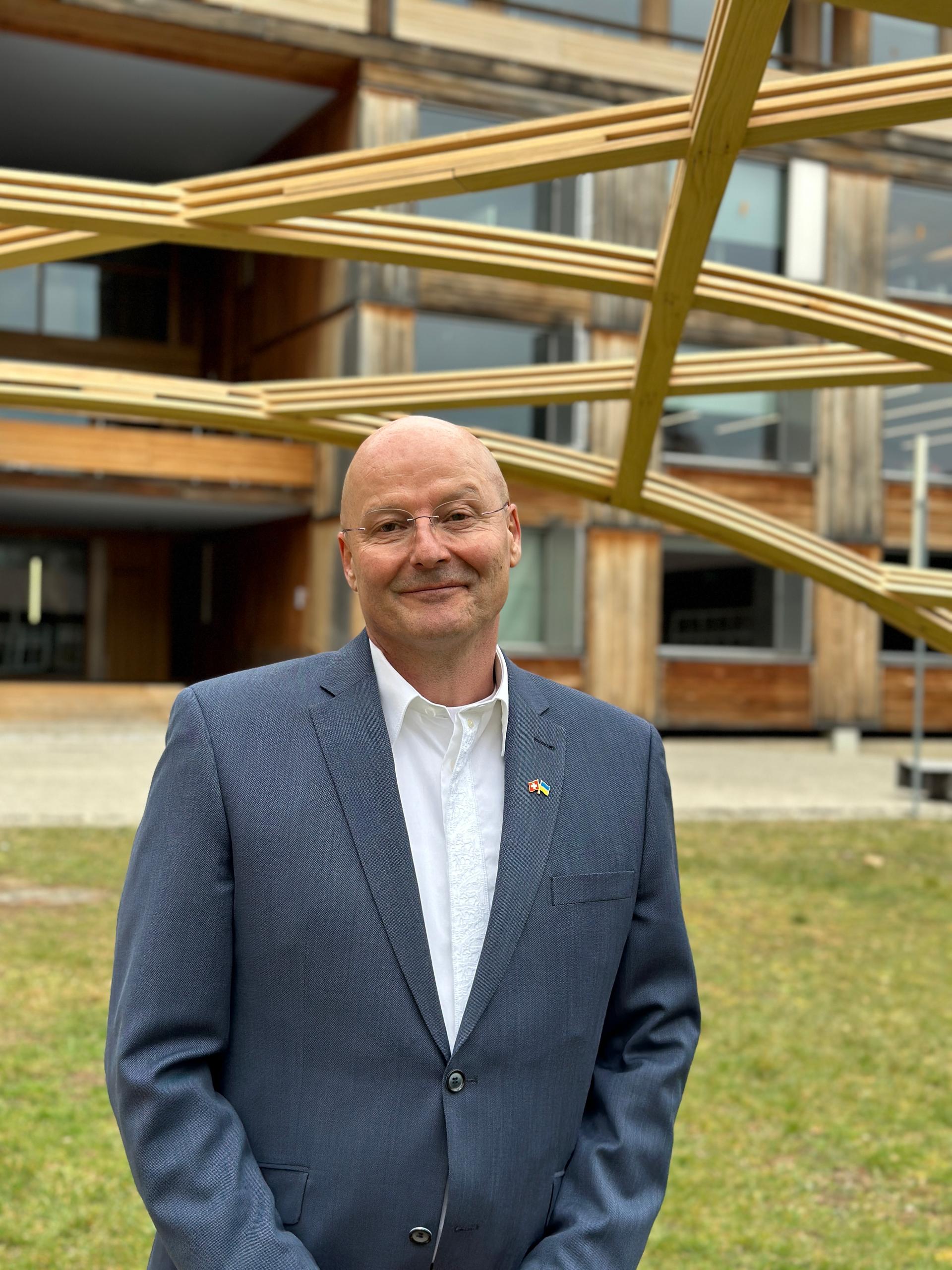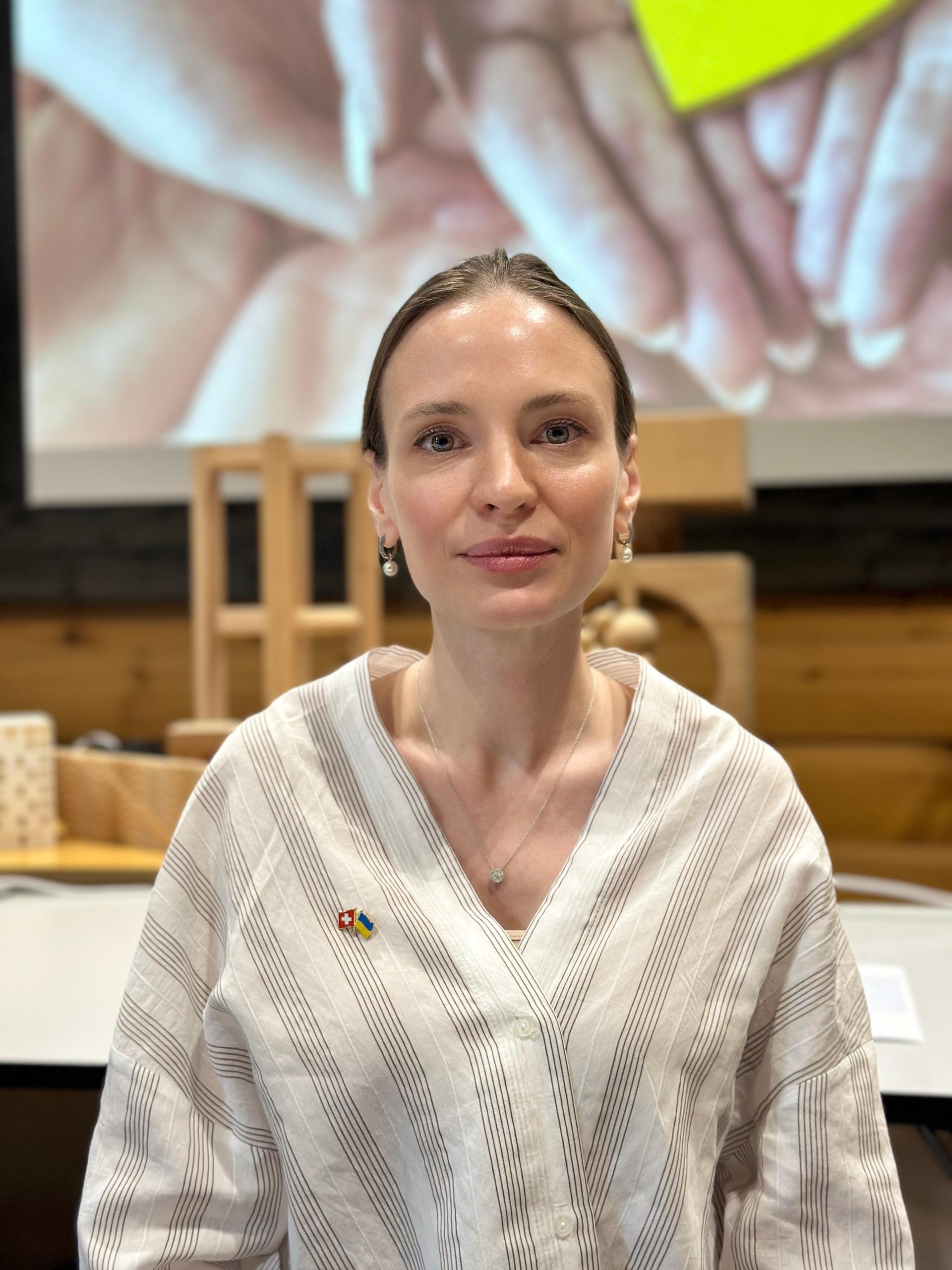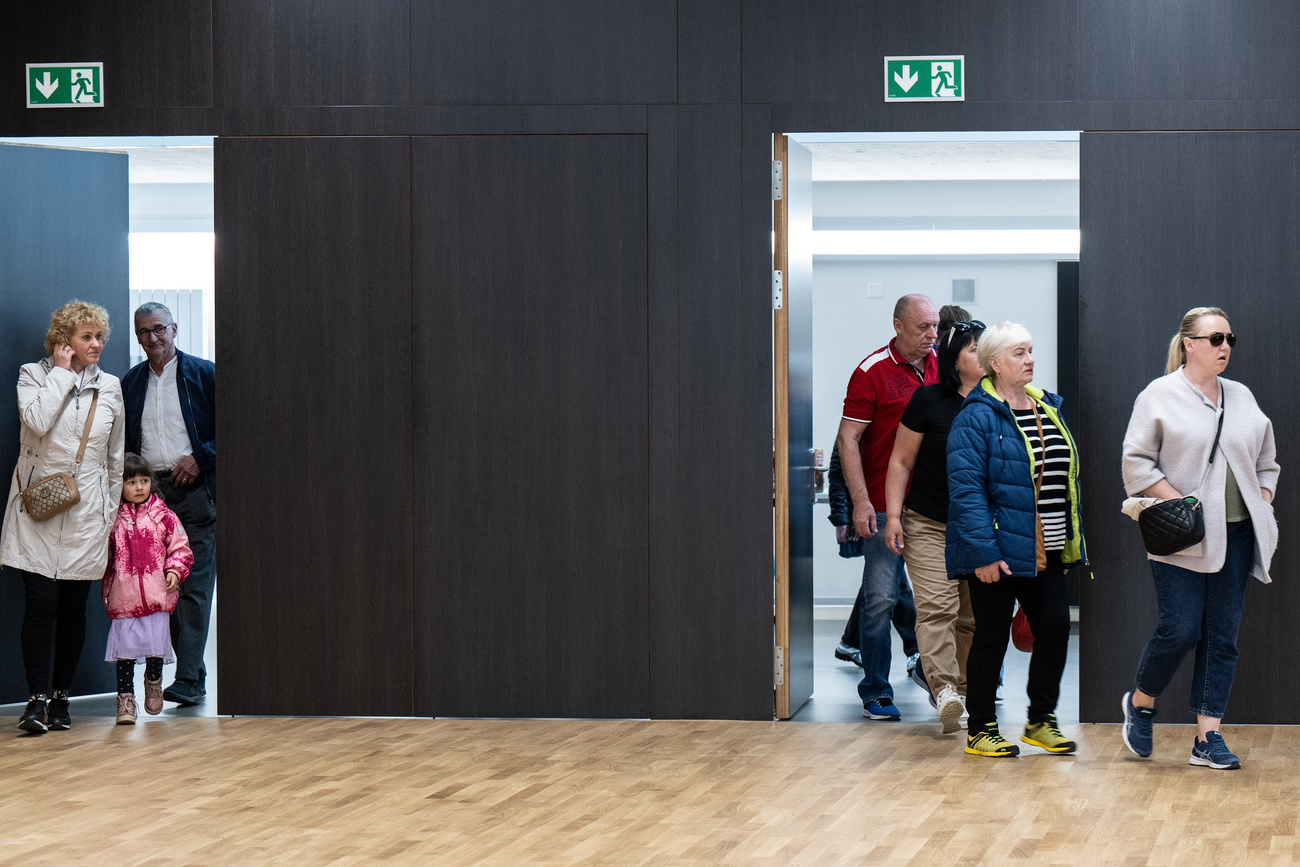
A Swiss programme to train Ukrainian refugees in reconstruction
A further education programme in Bern has been designed with the singular aim of training refugees from Ukraine so they can take active part in the reconstruction of their country.
Little more than a year after Russia invaded Ukraine, the scale of destruction across the country is vast. The fighting may be continuing unabated but talk of reconstruction has already begun. Switzerland has indicated its willingness to play a major role in this and is not waiting for the end of hostilities to get started.
On the initiative of then-president Ignazio Cassis, Switzerland hosted the Ukraine Recovery ConferenceExternal link in Lugano in July 2022, attended by 58 international delegations and hundreds of representatives from the financial and private sectors.
The conference was criticised by some observers, who wondered how countries could be thinking about reconstruction when war was still raging. Nevertheless, the Lugano event marked the start of several official discussions on the issue: two similar conferences have since been held in Berlin and Paris. The second edition External linkof the Ukraine Recovery Conference is scheduled to take place in London next June.
Private support
The Lugano conference also served to motivate civil society. Thomas Rohner was one of the conference participants. A few days after Russia invaded Ukraine on February 24, 2022, the professor at Bern University of Applied Sciences began thinking about how he and his team could help.
“I knew early on that we had to do more than just express our solidarity,” he says. “We had to offer something concrete.”

In Lugano, Rohner built up a network of people to help him implement his plan, which was to develop a programme for Ukrainian refugees in Switzerland that would train them to rebuild their homeland. He met people from the financial sector and public institutions and even participants who would eventually become students in the programme.
The Certificate of Advanced Studies (CAS) Rebuild UkraineExternal link training programme has now emerged from these discussions.
“[The course] is about empowering the refugees to spearhead the reconstruction of their country,” says Rohner. “The students come up with the projects – we give them the methods [to implement them].” Consequently the programme is more practical in orientation and aimed at people with the relevant professional background. The project ideas come directly from Ukraine and are fleshed out in class: for example, how to conduct damage assessments, plan water and electricity supply systems, and help to rebuild damaged buildings and infrastructure.
The course also addresses concrete questions, such as how to recycle or reuse destroyed concrete, identify which drones are suitable for inspecting collapsed buildings, or do an inventory of contaminated soil. The four-month course began at the end of February. Several other universities and institutions in both Switzerland and Ukraine are involved in the course, identifying projects and developing solutions.
Finding funding was a key requirement for the programme to take off. The training course costs CHF6,500 ($6,900), on top of travel and other expenses. Since the refugees are unlikely to have this amount of money, Rohner went in search of businesses, foundations and private individuals who could sponsor the students and pay their fees. The university also organised childcare, as many of the students are also parents.
A prototype for the future?
“It’s important to be part of the process and do something for my country,” says Yuliia Halushko, one of the programme participants. Halushko came to Switzerland with her three children shortly after Russia invaded Ukraine. Back in her home country, she had worked among other things in hydropower.
“I find it really valuable that we also deal with issues like sustainability and corruption,” she says of the course. The Ukrainian is optimistic that she will be able to apply the knowledge she gains from the programme when she returns home.

Twenty-seven of the 30 students are women – many of them have a background in construction and the energy industry; others are changing careers. Interest in the programme is high, so the university plans to run it again this autumn. Rohner believes the course could become a prototype for training refugees from other war-torn countries.
“Other refugees could also benefit from this programme – like climate refugees, of whom we will maybe see more in the future,” he says.
This, however, may be difficult to achieve. In Switzerland refugees from Ukraine are entitled to a so-called S permit, which allows them to work and study right away. Asylum-seekers, on the other hand, can only access these rights if they receive a positive decision, often after a lengthy procedure.
In the case of Ukraine, it’s likely that the United States and European countries will provide the bulk of funding for reconstruction. But how this will be done remains unclear. Perhaps the participants of the programme will soon come up with some ideas.
Adapted from German by Billi Bierling/gw









































You can find an overview of ongoing debates with our journalists here . Please join us!
If you want to start a conversation about a topic raised in this article or want to report factual errors, email us at english@swissinfo.ch.